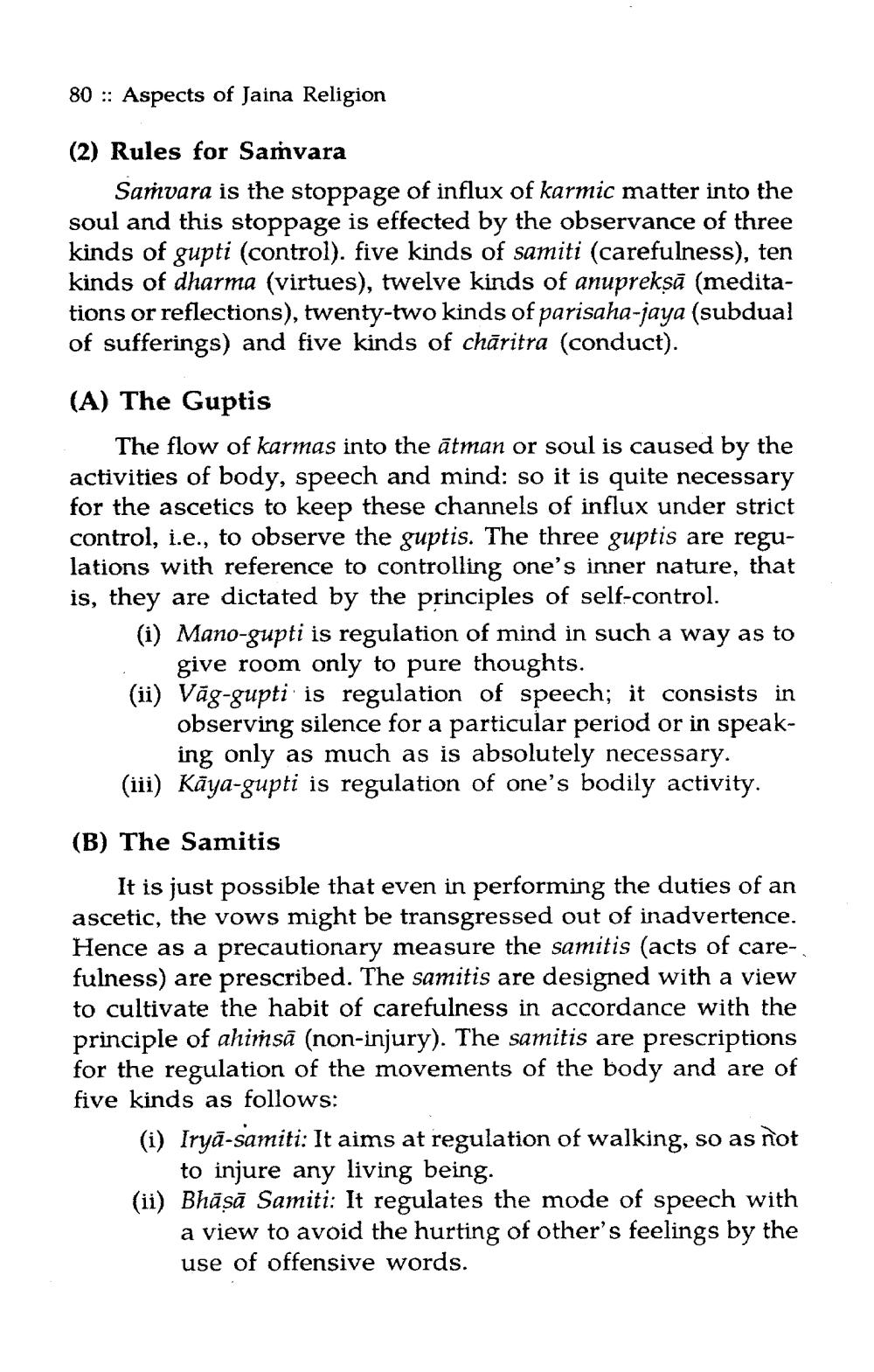________________
80 :: Aspects of Jaina Religion
(2) Rules for Saṁvara
Samvara is the stoppage of influx of karmic matter into the soul and this stoppage is effected by the observance of three kinds of gupti (control). five kinds of samiti (carefulness), ten kinds of dharma (virtues), twelve kinds of anupreksā (meditations or reflections), twenty-two kinds of parisaha-jaya (subdual of sufferings) and five kinds of chāritra (conduct).
(A) The Guptis
The flow of karmas into the ātman or soul is caused by the activities of body, speech and mind: so it is quite necessary for the ascetics to keep these channels of influx under strict control, i.e., to observe the guptis. The three guptis are regulations with reference to controlling one's inner nature, that is, they are dictated by the principles of self-control.
(i) Mano-gupti is regulation of mind in such a way as to
give room only to pure thoughts. (ii) Vāg-gupti' is regulation of speech; it consists in
observing silence for a particular period or in speak
ing only as much as is absolutely necessary. (iii) Käya-gupti is regulation of one's bodily activity.
(B) The Samitis
It is just possible that even in performing the duties of an ascetic, the vows might be transgressed out of inadvertence. Hence as a precautionary measure the samitis (acts of carefulness) are prescribed. The samitis are designed with a view to cultivate the habit of carefulness in accordance with the principle of ahiṁsā (non-injury). The samitis are prescriptions for the regulation of the movements of the body and are of five kinds as follows:
(i) Iryā-samiti: It aims at regulation of walking, so as not
to injure any living being. (ii) Bhāṣā Samiti: It regulates the mode of speech with
a view to avoid the hurting of other's feelings by the use of offensive words.




